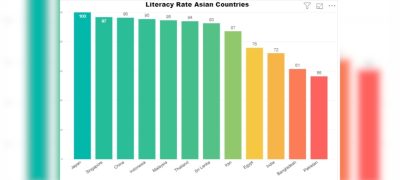LONDON – The UK government has announced a 4.1% rise in the minimum wage, bringing the main rate to £12.71 ($16.67) per hour starting next April. The increase aims to keep pace with average pay and support low-income workers.
Finance Minister Rachel Reeves said the hike was needed “so that those on low incomes are properly rewarded for their hard work.” This adjustment will benefit 2.4 million workers aged 21 and over. Additionally, around 300,000 apprentices and workers under 21 will see a rise of 6.0% to 8.5% as the government continues phasing out lower rates for younger employees.
The increase comes after a 6.7% rise earlier this year and follows years of steady growth in the minimum wage, which has risen more than 60% since 2019. Britain now has the second-highest minimum wage in Europe relative to average pay, with the government targeting two-thirds of median hourly earnings.
Reeves highlighted that the rise comes ahead of her annual budget announcement, which is expected to include tens of billions in tax changes. She added that the cost of living remains the top concern for working people and emphasized the need to protect low-income earners.
However, the move faced criticism from the hospitality sector. Kate Nicholls, chair of UKHospitality, warned that higher minimum wage costs would be passed to consumers, increasing prices. She also noted that bigger pay rises for younger, less experienced workers could make it harder for them to find jobs.
The Low Pay Commission, which recommended the increase, said previous rises for workers over 21 did not have a significant negative impact on employment. Chair Philippa Stroud noted that the commission carefully balanced challenges for low-income workers with pressures on businesses from tax changes.
In other news read more about UK Doubles Waiting Period for Permanent Residency Under New Immigration Rules
The government and Low Pay Commission stressed that the increase reflects a commitment to fair wages, supporting workers while considering the economy’s capacity to absorb higher labour costs.









